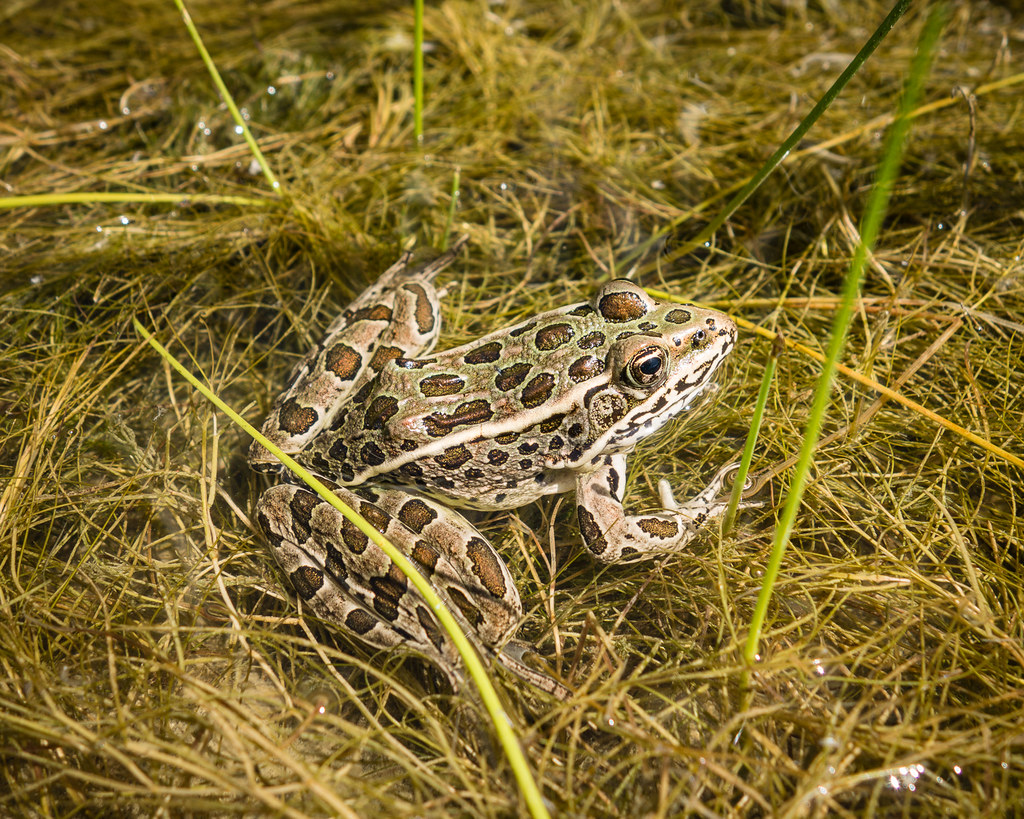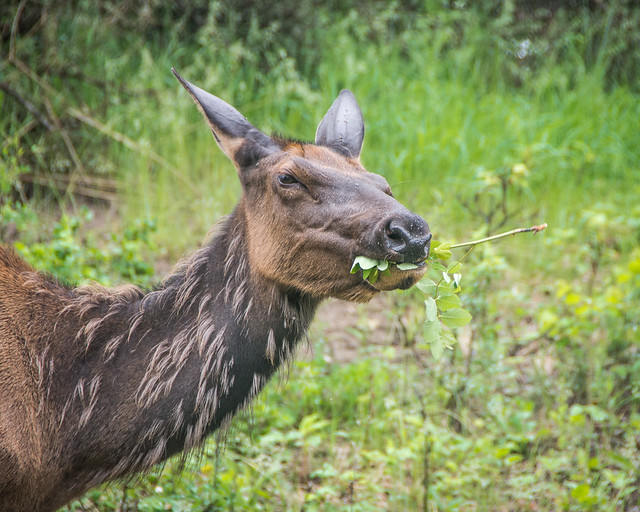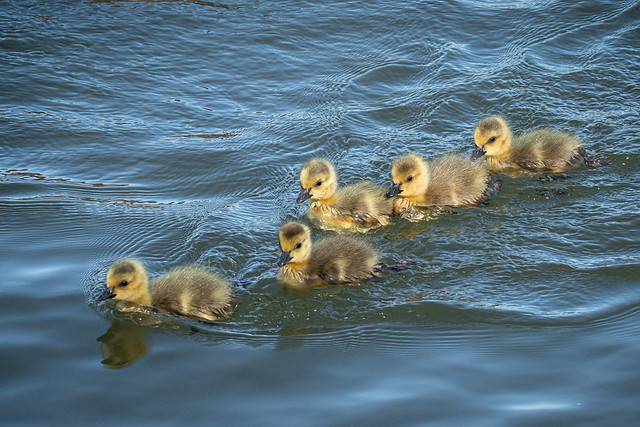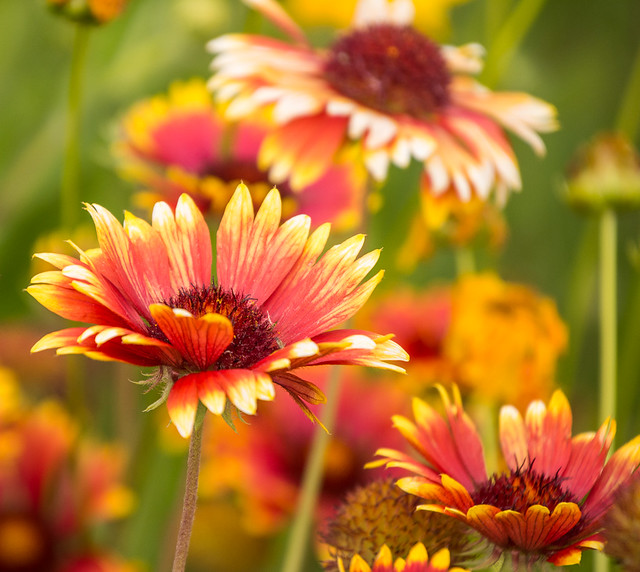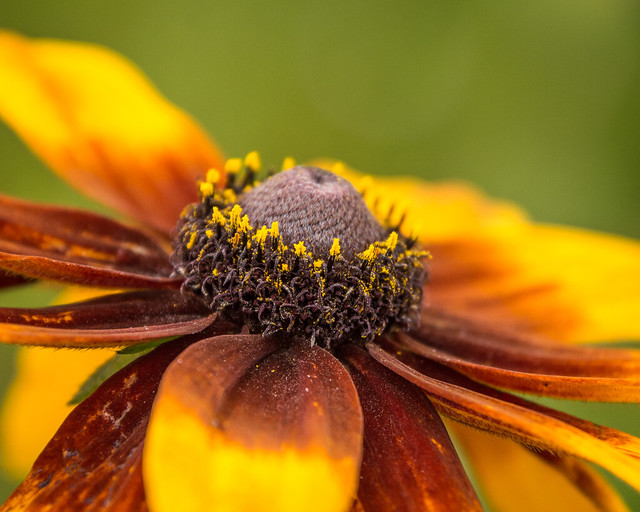1. Habitat Enhancement
Habitat loss or degradation is almost always one of the reasons a species is at risk. Any efforts you take to create a wildlife-friendly habitat on your property will be hugely beneficial. Add a pond or water feature, install nest or bat boxes, or plant wildflowers. Each of these actions will help a variety of different creatures.
Swallows: Swallows are in rapid decline. If you find them nesting under your eaves, don’t stop them. You’ll be grateful when you see how many insects they can eat in just a few hours.
Bats: Do you have a bat house in your garden? By monitoring and uploading the results to iNaturalist, you can provide valuable information about the best bat house design.
Insects: Insects are particularly valuable as they are the primary food source for so many reptiles, amphibians, birds, and even some animals. They’ll really appreciate it if you keep your yard on the wild side. Don’t rake the leaves in autumn. Don’t mow the grass in early spring. Build an insect hotel. Leave a pile of detritus in an out-of-the-way corner. You’ll be creating cozy spots where insects can live and over-winter.
You’ll gain lots of information and probably native seeds and plants by joining the Butterflyway Project in your local community, which encourages individuals and families to plant pollinator-friendly gardens.
Dead Trees & Fallen Logs: We tend to remove dead trees or fallen branches from our private and municipal properties, but they play a vital role in maintaining biodiversity. From 10-40% of birds and mammals nest and raise their young in holes in trees. By maintaining multi-age ecosystems, we’re providing a habitat for birds, insects, and animals as well as maintaining the nutrient cycle.
Pesticide-free: The pesticides and herbicides that you spray on your grass and lawn are poisons and will also harm insects, birds, and other wildlife that eat sprayed vegetation.
Clean Up Litter: Removing litter from shorelines and other natural areas protects wildlife from hazards (such as ducks getting tangled in fishing line) and the soil and water from contaminants (cigarette butts leach toxic chemicals).
You can also make sure any water running through your property isn’t contaminated and take steps to prevent run-off and erosion. One couple whose homes fronts onto a lake stopped weeding their shoreline last year and have noticed that they have far more wildlife – beavers, killdeer, and turtles.
Katie and Aaron Suek of the Restoring 71 Project believe that acreages are a missed opportunity as they have so much potential for positioning the protection and restoration of natural areas as a convenience rather than an added effort. “It’s so much less work and you’ll see so much more wildlife if you let it go wild,” Katie says.
The Native Plant Society of Saskatchewan offers a guide to acreage living that you may find useful.
It can be tempting to attempt to reintroduce a wild creature such as a frog or lizard onto your property, but it’s risky. The habitat may be wrong or it may be the wrong species for your particular area (for example, there are several different varieties of northern leopard frog). A more effective approach is to volunteer or donate to support a professional reintroduction project.
Volunteer: If your primary interest is plants, why not volunteer with the Native Plant Society of Saskatchewan and help pull out invasive species or plant native plants along roadsides? Volunteers with the Nature Conservancy of Canada help with tree planting, reducing barriers and hazards to wildlife, installing nest boxes, and many other projects. There have been opportunities in the past to assist with wildlife reintroduction projects at Grasslands National Park.
Donate: Conservation projects are always looking for additional funds and would welcome your support. Here are just a couple of local programs.
The Calgary Zoo’s conservation research team is using science to sustain threatened wildlife. They are breeding whooping cranes, northern leopard frogs, swift foxes, and various other species for reintroduction into the wild.
The Saskatchewan Burrowing Owl Interpretive Centre offers displays and educational programs to promote the conservation of this endangered owl and its habitat. A similar program in British Columbia, the Burrowing Owl Conservation Society of British Columbia, has a captive breeding program and creates and maintains a system of artificial burrows for released owls.
Organizations such as the Nature Conservancy of Canada play an important role in preserving and restoring ecologically significant areas by planting trees, restoring wetlands, and removing invasive species and wildlife hazards. They offer a variety of volunteering, donation, and legacy options.
